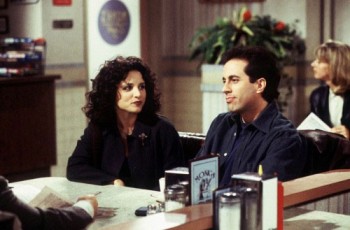Preparing a Stellar Résumé
 “A date is a job interview that lasts all night.”
“A date is a job interview that lasts all night.”
– Jerry Seinfeld
Anyone who has known me for long knows I compare work – especially applying for a job – to dating. After all, the comparisons are many.
And frankly, thinking of the application process (writing your résumé and creating your cover letter) like dating is actually quite useful.
While the end goal of dating is a prosperous relationship, the end goal of the application process is for you to land a job. And the rules to follow are quite the same:
- Always tell the truth
- Be straightforward and don’t play games
- Show off your best attributes
- Just be YOU!
Keep these simple rules in mind as you move forward and you will be on your way to a job offer — and a stellar dating life.
The Résumé
They say you never get a second chance to make a first impression. And so it goes with dating and résumés. You have about 10 seconds – 30 if you’re really lucky – to convince a hiring manager that you are worth considering for the job. So let’s talk about how to make those precious seconds count.
The layout of your résumé should be inviting and easy to understand. Your résumé should have a clean format with as much white space as possible. You should use one simple typeface and avoid superfluous items such as photos, color, and tables. As a general rule, your résumé should be no longer than one page — unless you are an academic, public speaker, or prolific author, in which case more pages may be necessary to list your publications/presentations.
With respect to content, there are two essential items for a résumé: education and experience. Everything else is subject to a good arm-wrestling match.
For education, which I suggest you put at the top of your résumé, you should include:
- University
- Degree
- Major
- Date of graduation
- G.P.A. (if it’s good – 3.5 and above)
- City and state of the university (Did you know there are at least three Notre Dames in three different states?)
- Any notable highlights such as student body president, student union board, athletic participation, major scholarships, etc.
For experience, which should come right below education, you should list all full-time jobs and relevant internships. As you move along in your career, you’ll want to drop internships as your work experience grows. For each role, you should include:
- Employer
- Job title
- City and state
- Dates of employment (Month, Year)
- Bulleted list of responsibilities and accomplishments that start with informative and what I like to call “sexy” verbs, such as build, create, manage, oversee, develop, analyze, author, strategize, etc.
Other good sections to include if you so desire are civic participation (volunteering, political involvement, college alumni groups, etc.) and special skills (language, computer skills, and relevant certifications).
Now, for the sections I think you ought to leave behind like high-waisted Mom jeans: objective, accomplishments, qualifications, and personal. Let’s start with my favorite, the objective. In the thousands of résumés I’ve reviewed over the years, I can tell you no objective statement has ever moved me to think more favorably about a candidate. However, I cannot tell you how many times an objective statement has moved me to think less favorably about a candidate — especially when the candidate wants to work for the wrong organization or achieve a lofty goal such as world peace. The rightful place for stating one’s objective is the cover letter – let’s just keep it there.
Accomplishments and qualifications are two sections I’ve seen creeping – like bad government policy – into résumés as of late. All of the information contained in sections like this should already appear in other parts of your résumé; your accomplishments should appear under each job, and your qualifications should appear under each job or under the education section.
Therefore, by inserting these sections you are essentially repeating yourself or creating more work for the hiring manager by making them flip between sections to understand the context for the accomplishments or qualifications. Make everyone’s life easier by leaving these sections out of your résumé.
Finally, there’s the personal section of résumés. In one word – don’t do it. Not only is the section a gold-leafed invitation to provide information that could get a hiring manger into legal trouble (your marital status, whether you have children, your religion, etc.), it’s simply not relevant. (I’m impressed you like to mountain bike and shoot skeet, but what in the Sam Hill does that have to do with a tax policy analyst position?) Save your personal revelations for happy hour with co-workers after you get the job.
In next month’s post I’ll tackle the cover letter. Stay tuned!
Claire Kittle Dixon is the Executive Director of Talent Market.
